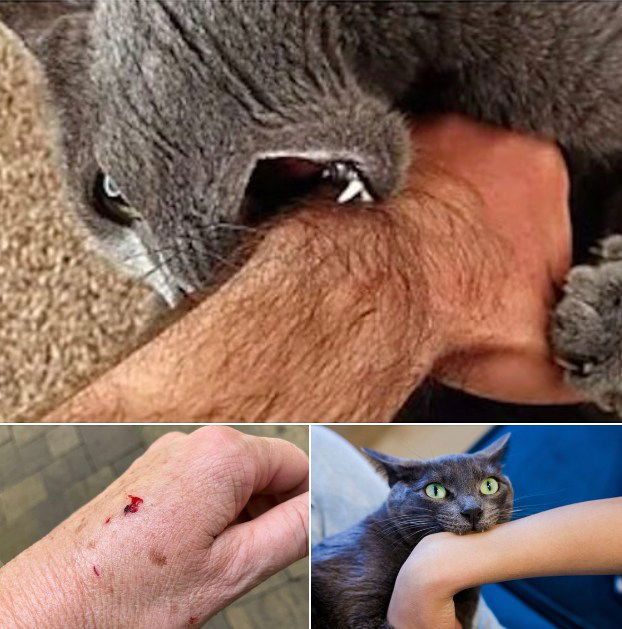
Anyone who has ever had a cat knows how delightfully eccentric they can be. My former cat enjoyed playing, chasing mice, and cuddling with me.
But every now and then, he’d give me a small nibble, which always surprised me. Does your cat bite you, too? Here’s what it might mean:
When a cat bites you, the meaning varies based on the setting and nature of the bite. Below are some common causes…
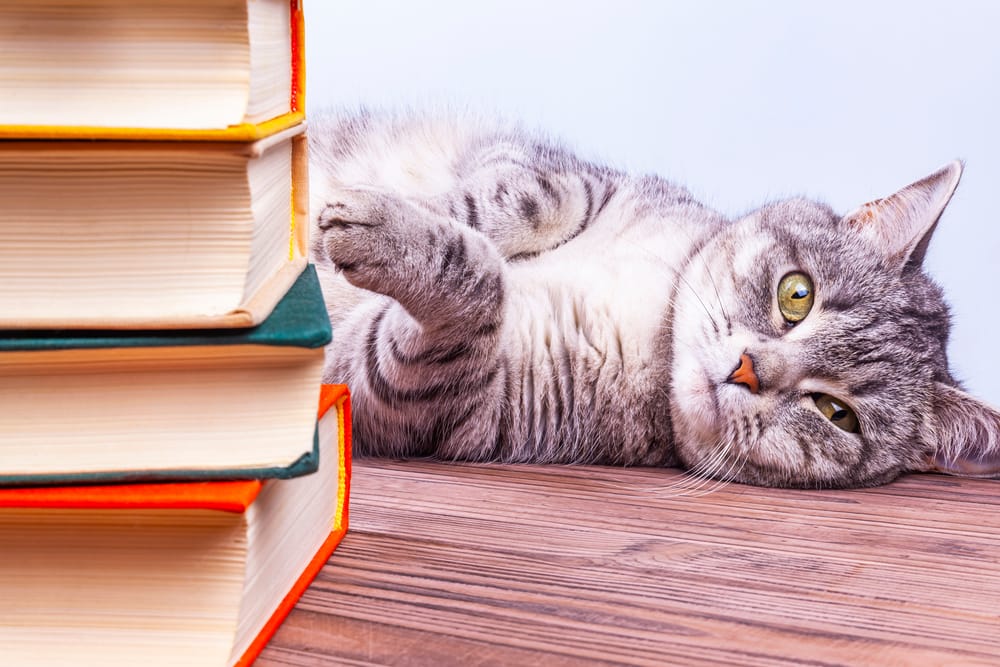
Playfulness
Cats are naturally lively creatures that require freedom to explore their surroundings. Cats may bite softly during play, especially when overstimulated. These playful nips are normally not violent and do not cause skin damage, but we all know they can hurt!
Love Bites
If your cat adores you, it is not uncommon for them to offer you a small nibble now and again. It’s just their way of acknowledging you did an excellent job! Cats may administer soft, gentle bites to express affection. This typically occurs while they are purring or enjoying being petted.
“They may be saying, ‘I’m enjoying this interaction but it’s becoming too much for me. I’m nearing my limit,’” says Samantha Bell, a cat expert from Best Friends Animal Society.
A cat may also give a playful nip when it is hungry, indicating a desire for food. Similarly, loving bites can be a cat’s subtle method of asking for more attention or affection. Rather than a sign of aggressiveness, these nibbles are usually a cat’s method of expressing its wants and strengthening its bond with its owner.
Overstimulation
Cats, like us, can become overwhelmed by too many feelings. It might be difficult for them to comprehend all their feelings at once, and they may act out unexpectedly. The same thing is true with cats. Some cats become overstimulated by excessive petting or attention. They may take a quick bite to let you know they require some space.
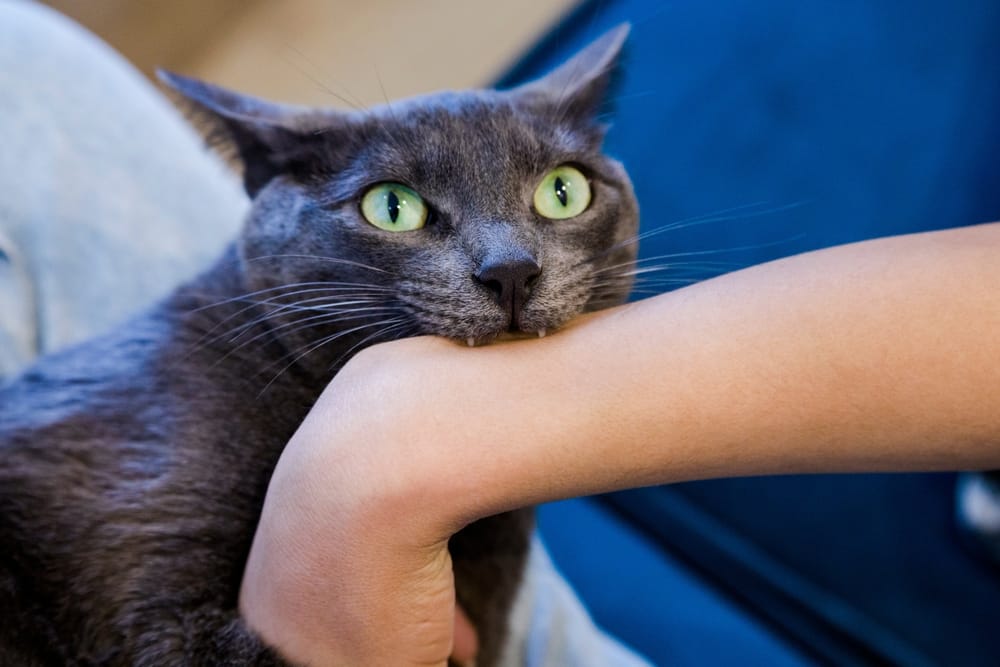
Fear or stress
Anyone who has been bitten by a cat will most likely think of this first. And it is a natural protective mechanism for all felines. If a cat feels attacked or terrified, it may bite to protect itself.
Pain or discomfort
Many individuals may be unaware that a cat bite can indicate something more dangerous. If a cat bites you unexpectedly, it could be because of discomfort or sickness. A veterinarian check-up might help rule out any underlying health concerns.
Territorial behavior
Cats are inherently territorial animals, and biting is a common technique for them to express dominance or defend their territory. A cat may bite to defend what they perceive to be their particular territory, which could be their favorite seat on the couch, a prized toy, or even a specific region of the house. This behavior is typically a response to feeling threatened or anxious, demonstrating that cats, like their wild ancestors, have strong instincts to guard their habitat.
Young cats and kittens
Young cats and kittens are recognized for their active and energetic personalities, and they frequently engage in rough play, including biting their owners’ hands and feet.
While this conduct may appear beautiful and innocent when children are young, it is critical to understand that encouraging such play might have long-term implications. Kittens learn about their environment and social limits through play, and if they are allowed to bite hands or feet in their early months, they may continue to do so until adulthood.
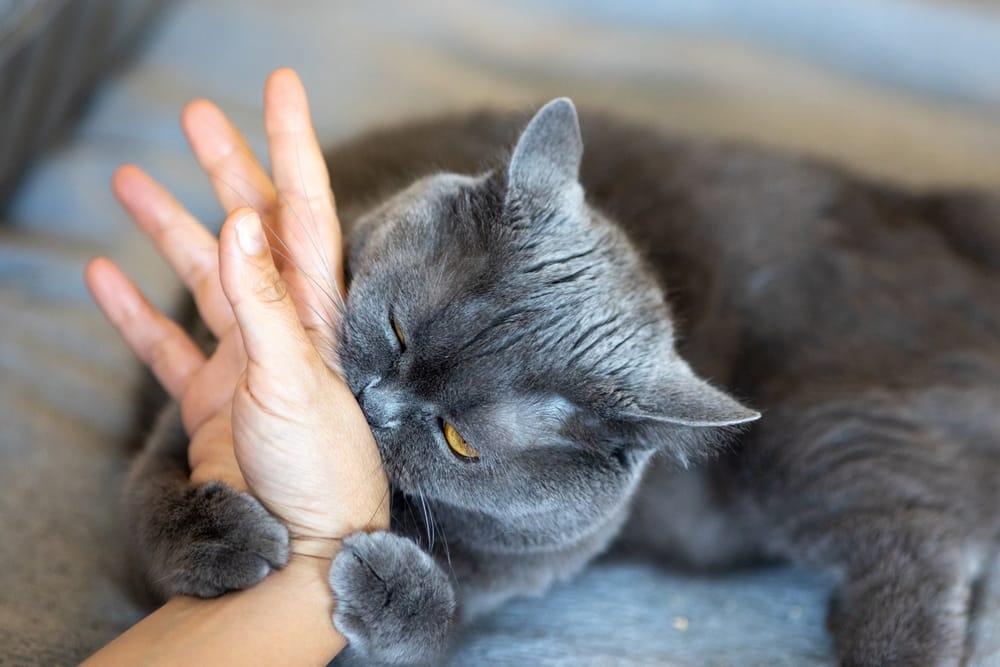
As cats grow, their bites can become more strong and severe, potentially endangering their human friends. To avoid this, it is critical to divert their fun energy toward acceptable toys and activities, teaching children that hands and feet are not appropriate playthings. Establishing these boundaries early on will help guarantee that your cat develops into a well-mannered adult, lowering the chance of harm and developing a more positive relationship with your feline companion.
How you treat a cat bite
Cat bites, particularly deep ones, can pose serious risks to humans and animals. This is due to the germs in a cat’s mouth, which can be dangerous if introduced into the bloodstream or an open wound.
Cats’ sharp teeth can penetrate deep into the skin, perhaps causing bacteria to infiltrate the underlying tissues. This can result in significant infections and consequences, thus it is critical to treat cat bites quickly and efficiently to avoid further health problems.
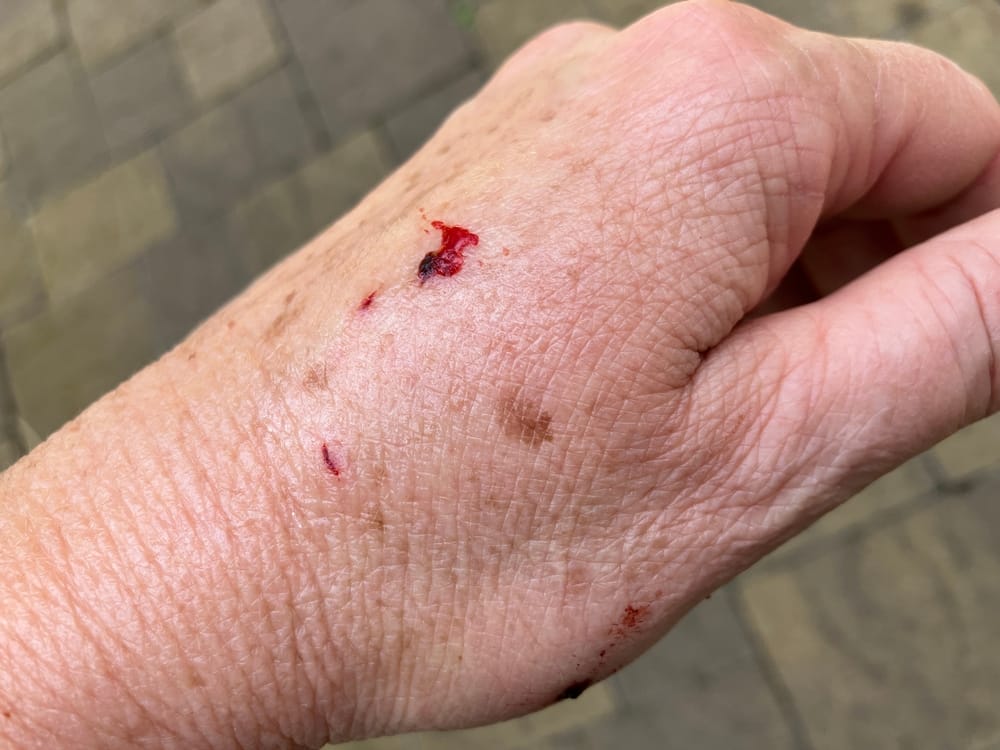
So, if an accident occurs, it is critical to take fast action to treat the injuries. Begin by carefully washing the area with mild soap and running water. Next, use an antiseptic solution to avoid infection. Finally, cover the wound with a clean, sterile bandage to protect it from further contamination.















